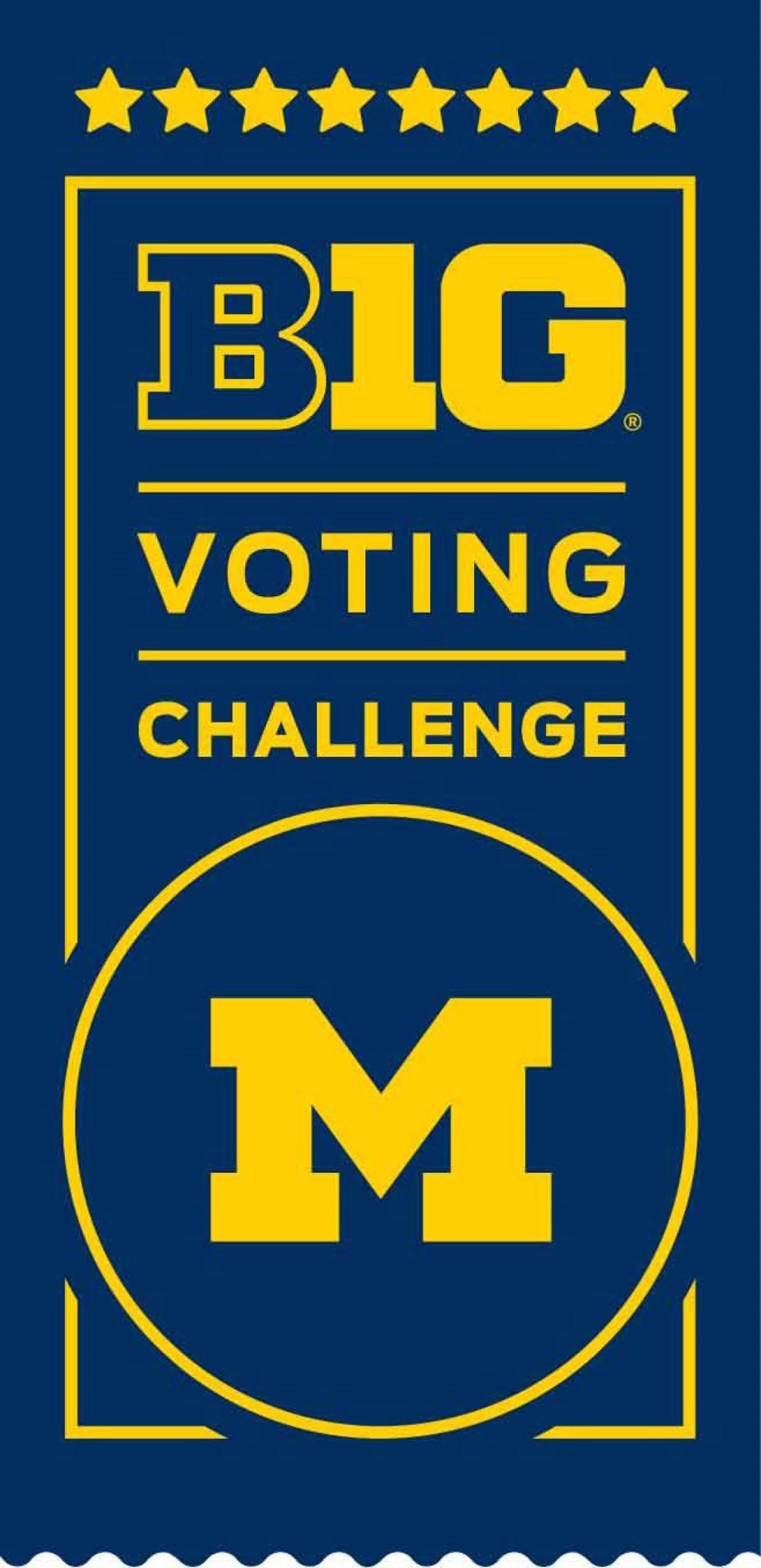From the Annual Report: Much of the Ginsberg Center’s work with students is dedicated to providing education and opportunities to practice civic engagement, with the hopes of instilling lifelong habits of democracy (such as voting, education, and engaging in dialogue) that will, in turn, impact social change for the greater good. This year provided a lot of challenges that required us to adapt more traditional efforts to reach student voters with great agility— which was only possible because of our well-established foundation of democratic engagement partnerships on campus and beyond.
The Ginsberg Center continued to serve as the conference and campus lead in the Big Ten Voting Challenge (BTVC), a conference-wide non-partisan competition aimed at increasing the rates of student voter registration and turnout. This year, the BTVC focused on online voter registration and messaging around safe, absentee voting to minimize the number of students present at campus polling locations on Election Day.
Ginsberg was also part of a growing campus coalition for this work, which included the Ann Arbor City Clerk’s Office, University of Michigan Museum of Art (UMMA), Stamps School of Art and Design, the Ford School, and University Housing, as well as Central Student Government, and the student organization Turn Up Turnout.
An on-campus satellite City Clerk’s office, a collaborative effort between the City Clerk, U-M’s Government Relations, UMMA, Stamps, and the BTVC, opened in September at UMMA. Over the course of six weeks, students and local residents used the office to register, complete, and submit absentee ballots, and/or use the ballot drop box for mail-in ballots. The satellite office saw 5,412 registrations and 8,501 ballots cast. During the two-day period leading up to Election Day on November 3, more than 1,000 registrations and absentee ballots were processed and cast at UMMA.
In addition, Ginsberg participated in a University-wide Democracy & Debate theme semester, creating and sharing Election 2020: A Non-Partisan Primer through Michigan Online and in workshops, orchestrating Democracy Café discussions for students, and creating other resources for student voter education and registration that were shared with faculty for use in classes. Ginsberg was also central to the development and operation of a tricampus collaboration. The collaboration focused on student voting, with a team composed of staff from the Flint, Dearborn, and Ann Arbor campuses, and a focus on equitable access to resources, including a texting platform, the GoVote website, and an email platform for questions.
Ginsberg’s democratic engagement efforts—in partnership with others both on campus and off—played a key role in U-M’s efforts during a year that challenged all of us to grapple with our understanding of and commitment to democracy. Opportunities to practice principles of democracy extend well beyond the voting window, and Ginsberg remains committed, as always, to promoting learning and opportunities for democratic engagement for U-M students and partners.
To view UM's 2020 voter turnout data, click here.
To read more from the Annual Report, click here.

